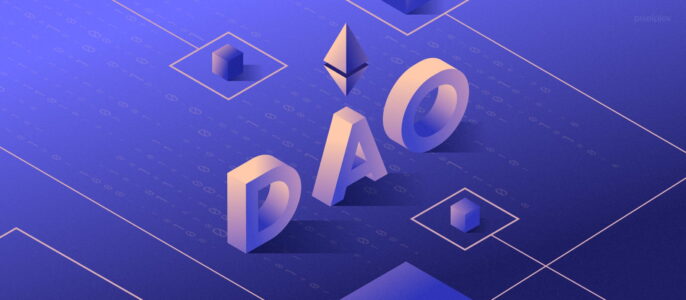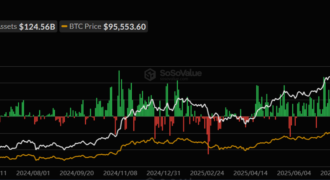The internet has always promised freedom and open access, yet much of it is dominated by centralized platforms — tech giants that control data, content, and influence. Enter DAOs, or Decentralized Autonomous Organizations, a revolutionary concept in Web3 that aims to redefine governance, collaboration, and ownership online.
Imagine communities making decisions collectively, managing funds transparently, and building ecosystems without a single authority dictating the rules. That’s the power of DAOs — a combination of blockchain technology, smart contracts, and collective intelligence.
But what exactly are DAOs, and how are they transforming the digital landscape? Let’s decode this phenomenon.
What Is a DAO?
At its core, a DAO is an organization run by code rather than traditional hierarchies. Instead of managers, CEOs, or boards, DAOs rely on smart contracts — self-executing protocols on blockchain networks — to enforce rules, manage funds, and automate decisions.
Members participate through token-based governance, which allows them to propose ideas, vote on initiatives, and influence the future of the organization. Every decision, transaction, or update is recorded on-chain, ensuring transparency and accountability.
Think of a DAO as a digital co-op where everyone has a say, and the rules are trustless, immutable, and enforceable by code.
Key Features of DAOs
- Decentralization:
Power is distributed among members rather than concentrated in executives or shareholders. - Transparency:
All operations, proposals, and fund movements are visible on the blockchain. - Autonomy:
Smart contracts handle execution automatically — from voting outcomes to fund disbursement. - Global Participation:
Anyone with an internet connection and governance tokens can participate. - Tokenized Governance:
Membership and voting rights are often represented by tokens, aligning incentives and ownership.
These features make DAOs a game-changing model for organizational management, particularly in the digital age where trust and global collaboration are critical.
How DAOs Are Reshaping the Internet
DAOs are not just a niche concept in blockchain — they represent a fundamental shift in how communities organize, govern, and create value online. Here’s how they are changing the game:
1. Redefining Online Communities
Traditional online communities rely on moderators, forums, or corporate rules. DAOs, however, empower members to self-govern.
For example:
- PleasrDAO is a collective that purchases digital art and NFTs, with all members voting on acquisitions.
- Friends With Benefits (FWB) is a social DAO where membership and decision-making are tokenized, blending community and value creation.
By democratizing governance, DAOs create engaged, accountable, and purpose-driven communities.
2. Unlocking Decentralized Finance (DeFi)
DAOs are central to the rise of Decentralized Finance. Many DeFi protocols are DAO-governed, meaning token holders vote on changes like:
- Adjusting interest rates or liquidity incentives.
- Allocating treasury funds.
- Approving new features or partnerships.
For instance:
- MakerDAO governs the DAI stablecoin, with MKR token holders voting on monetary policies, risk parameters, and system upgrades.
This model removes reliance on centralized institutions, allowing transparent and democratized financial systems to emerge.
3. Empowering Collective Investment
DAOs have revolutionized group investments. By pooling funds, members can acquire assets that would be inaccessible individually — from NFTs and digital art to venture capital opportunities.
Smart contracts automatically manage contributions, allocations, and profit distribution, eliminating middlemen and ensuring trustless collaboration.
- FlamingoDAO and The DAOist illustrate how investment DAOs allow members to co-own assets while making democratic decisions about acquisition and liquidation.
4. Facilitating Innovation and Open Source Development
Open-source projects benefit greatly from DAO structures. Contributors can propose improvements, vote on roadmap changes, and receive token-based incentives.
- Aragon is a platform for building DAOs, allowing decentralized governance for open-source projects.
- Gitcoin DAO funds public goods and open-source initiatives through collective governance.
This encourages merit-based collaboration while ensuring contributors share in the ecosystem’s success.
Challenges Facing DAOs
Despite their promise, DAOs are not without hurdles:
1. Legal and Regulatory Uncertainty
DAOs often exist in a grey area legally. Questions around liability, taxation, and corporate recognition remain unresolved in many jurisdictions.
2. Governance Attacks
While decentralized, DAOs are not immune to manipulation:
- Whale attacks: Large token holders could sway votes disproportionately.
- Sybil attacks: Fake or duplicate accounts may attempt to influence governance.
3. Scalability of Decision-Making
As DAOs grow, coordinating proposals and votes can become cumbersome. Tools like delegated voting or liquid democracy are emerging to address this challenge, but there’s still work to do.
4. Technical Vulnerabilities
Smart contracts are code, and code can have bugs. DAO exploits, like The DAO hack of 2016, have cost millions, highlighting the importance of secure auditing and testing.
The Future of DAOs
Despite challenges, DAOs are poised to reshape online collaboration and governance across multiple sectors:
- Media and Content Creation:
Creators could form DAOs to govern fan communities, monetize content, and reward participation fairly. - Gaming:
Play-to-earn ecosystems can use DAOs to let players vote on in-game economies, rules, and updates. - Social Impact:
Charitable DAOs pool resources for causes, giving contributors transparency and voting power over fund allocation. - Corporate Models:
Future businesses may adopt DAO-inspired governance, combining traditional enterprise structures with decentralized decision-making.
The combination of tokenized incentives, automated execution, and global collaboration makes DAOs a blueprint for the next generation of digital organizations.
Why DAOs Matter in Web3
DAOs are a cornerstone of Web3, embodying its core principles:
- Decentralization: Removing reliance on central authorities.
- Ownership: Giving participants real stake and governance rights.
- Transparency: Recording all actions on-chain for accountability.
- Global Inclusion: Anyone can participate, breaking geographical and institutional barriers.
They transform the internet from a space of passive consumption to active, participatory governance, where communities co-create value and make collective decisions.
Final Thoughts
DAOs are more than a technological innovation — they are a philosophical shift in how we organize, collaborate, and create online. By combining blockchain, smart contracts, and tokenized governance, DAOs offer transparent, autonomous, and inclusive structures that challenge traditional hierarchies.
From DeFi to digital art, open-source projects to social communities, DAOs are proving that decentralized governance is not just possible — it’s powerful.
As the Web3 ecosystem matures, DAOs may become the default framework for online collaboration, turning passive users into active stakeholders and co-creators.
The decentralized internet is here — and DAOs are its governing brain.



